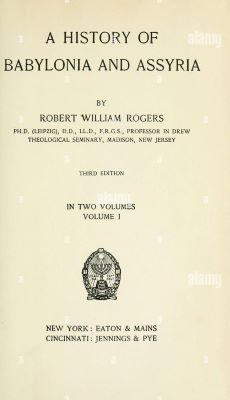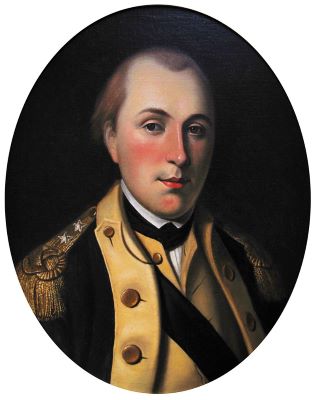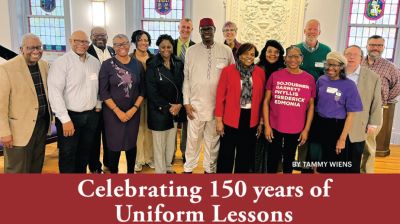
In the previous post (Is Morgan Freeman God? What Do Biblical Scholars Think?) , I suggested that a missing ingredient in the analysis of many biblical stories was that some of them were written to be performed. Specifically I cited the frequently assumed and completely wrong pronouncement that early Israelite religion was primitive. According to this view, the ancient Israelites first worshiped an anthropomorphic deity. Israel expressed this belief through stories that seemingly contained a physical presence of the deity in male human form. Only centuries later would Israel evolve to the higher order thinking of a cosmic deity.
Biblical scholars are correct to note the anthropomorphic presence of the deity in some biblical stories. The reasons for this appearance are twofold.
1. In stories originally communicated through oral storytelling, the physical presence is that of the male storyteller. For example, in the Tower of Babel story addressed in the previous post it is the storyteller using the voice of God who engages the audience in this story about the temple in Jerusalem. In the story of Jacob’s nocturnal wrestling, it is the storyteller wrestling with the meaning of the identity of Israel that is vigorously displayed (at the threshing floor?) to the audience.
2. Other stories were staged in the Israelite version of royal performances known in Egypt and especially Mesopotamia with the akitu. These stagings involved multiple people, primarily the king, queen or high priestess, and high priest. They could include physical objects such as a statue or an ark. They could involve processions. They typically were concerned about the prosperity of the kingdom for the coming year or under the new king. In other words, they expressed the resolution of the battle between cosmos and chaos, between order and disorder, between all is right with the universe and it isn’t. Each culture addressed these issues in its own way based on its own landscape and history. Israel was not excluded from the process. While there is some awareness of an Israelite king performing in a restoration of order ritual, David installing the ark of Yahweh at Zion, the actual performance extended far beyond that one scene.
A single post is inadequate to present and explain the entirety of the royal performance, so I will confine myself to two examples involving the physical presence of Yahweh:
1. Yahweh’s blessing at the conclusion of the flood story
2. Yahweh and Abraham’s walk and discussion prior to the destruction of Sodom.
FLOOD STORY BLESSING
Genesis 8:21 And when Yahweh smelled the pleasing odor, Yahweh said in his heart,… 22 “While the earth remains, seedtime and harvest, cold and heat, summer and winter, day and night, shall not cease.”
The idea that this blessing concluded the original sequence of stories identified as “primal” is not new. This understanding is correct but the full significance of the ending has not been appreciated.
First, in the performance, the priest of Yahweh is blessing the earth (adamah) to the king performing as Noah. To repeat the point first made in the previous post, the human voicing the words of Yahweh is not thought to be Yahweh; nor is Yahweh thought to be in human form. Instead, the person performing as Yahweh who utters this blessing is accepted by the king and the audience as having the legitimacy to pronounce the words of the Lord.
Second, the blessing is fairly audacious to say the least. Normally, one would expect a blessing for the coming year with a renewed blessing to be offered during the following New Year festival. Instead, the blessing is one in perpetuity. It is reasonable to conclude that the climate at the time was an excellent one such that a king could support a blessing for all time. Obviously such a condition would not be true in the 9th century when Elijah faced off with Baal to make it rain (I Kings 18).
Third, speaking of Baal, this blessing may be the single most anti-Baal statement in the entire Bible. Based on this blessing, the need for Baal is negated. The blessing does not express the triumph of the stronger Yahweh over Baal. Nor does it express monotheism as we would define it. Rather it denies the relevance of Baal. Why have an annual ceremony to Baal for prosperity for the coming year if Yahweh has already promised good times for perpetuity? As the high priest of Yahweh intones this blessing to the king as Noah, he also is delivering a message about Baal.
Fourth, the message about Baal has political ramifications. In the kingdom of Israel, the petty kings of the individual Canaanite cities were no more. You could probably compile a list of all those kings who bit the dust. However, the demise of the political figures of authority still left the Baal industrial complex intact. Were people still expected to bring tithings to the local Baal priests? The answer according to this blessing was “No.” The denial of the validity of Baal served to eliminate an onerous burden of the Canaanite people now in the kingdom of Israel. The rule of Yahweh meant no taxes in the kingdom just as it had for the centuries of Israelite existence prior to the monarchy.
Fifth, the blessing by the priest of Yahweh on behalf of the kingdom forms an inclusio with the blessing of the sacred marriage at the beginning of the first cycle. In the garden story, the same high priest voicing the word of God had blessed the marriage of the man and the woman, the king and the queen, in words that ae still used to this very day in declarations of love.
Genesis 2:24 Therefore a man leaves his father and his mother and cleaves to his wife, and they become one flesh.
One should note that in the biblical narrative, Jacob is the first male to actually fulfill this vow. That development demonstrates a link between the first and third cycles augmented by the king performing in the lead human male role in both of them.
We have recently had the opportunity to witness the appeal of a royal marriage by two people who will never be king and queen. We would be wrong to ignore the appeal and power of the publicly-pronounced and witnessed sacred marriage between the king and queen in ancient Israel…especially if there were any questions regarding the appropriateness of the marriage.
Sixth, the two blessings provide a cosmos and chaos framework to the first cycle of the performance. From the garden through the murder and deluge to the new creation, there is a story of cosmos, chaos, and cosmos restored. The cycle ends by setting the stage for a new world order to come in the second cycle when the warrior shepherd-meaning-king of Hebron takes the stage. Regardless of the origin of the stories of the first cycle, they have been resequenced, repurposed, and revised to exclaim a mini-Israelite akitu that promises a bright future and prepares for the coming of the king from Hebron.
Seventh, since the blessing by the priest of Yahweh open and closes the first cycle, this means that the subsequent stories prior to the start of the second cycle are all supplemental. The stories of the sons of Noah, the son of Cush (Nimrod), and the sons of men (Tower of Babel) were not part of the original cycle. I call these supplemental stories “son” stories and analyze them in my book Jerusalem Throne Games: The Battle of Biblical Stories after the Death of David. In these stories and other supplemental writings to the original royal narrative, one may observe the three major political parties, the Levites, the Aaronids, and the Zadokites, battling for power using the alphabet prose narrative. The new endings eclipsed the blessing by the priest of Yahweh and also provide a new stage for the introduction for the warrior shepherd-meaning king from Hebron. As should be obvious, there were strong feelings about the presence of the Canaanite Jebusites and Jerusalem temple in the kingdom of Israel as well as which priesthood should be the voice of God in the kingdom.
WALKING WITH GOD
Genesis 18:16 Then the men set out from there, and they looked toward Sodom; and Abraham went with them to set them on their way…. 22 So the men turned from there, and went toward Sodom; but Abraham still stood before Yahweh. 23 Then Abraham drew near, and said, “Wilt thou indeed destroy the righteous with the wicked? 24 Suppose there are fifty righteous within the city; wilt thou then destroy the place and not spare it for the fifty righteous who are in it? 25 Far be it from thee to do such a thing, to slay the righteous with the wicked, so that the righteous fare as the wicked! Far be that from thee! Shall not the Judge of all the earth do right?” 26 And Yahweh said, “If I find at Sodom fifty righteous in the city, I will spare the whole place for their sake.” 27 Abraham answered, “Behold, I have taken upon myself to speak to the Lord, I who am but dust and ashes. 28 Suppose five of the fifty righteous are lacking? Wilt thou destroy the whole city for lack of five?” And he said, “I will not destroy it if I find forty-five there.” 29 Again he spoke to him, and said, “Suppose forty are found there.” He answered, “For the sake of forty I will not do it.” 30 Then he said, “Oh let not the Lord be angry, and I will speak. Suppose thirty are found there.” He answered, “I will not do it, if I find thirty there.” 31 He said, “Behold, I have taken upon myself to speak to the Lord. Suppose twenty are found there.” He answered, “For the sake of twenty I will not destroy it.” 32 Then he said, “Oh let not the Lord be angry, and I will speak again but this once. Suppose ten are found there.” He answered, “For the sake of ten I will not destroy it.” 33 And Yahweh went his way, when he had finished speaking to Abraham; and Abraham returned to his place.
Notice that the human male performer does not pronounce the name of the deity. The king refers to him as “Lord.” By contrast, the author does use the name. This usage is consistent with the perception of Moses as being the first to know the name and in contrast to the supplemental son stories of Seth (Gen. 4:26) and Nimrod (Gen. 10:9). One may posit that the three priesthoods differed on when the name of Yahweh became known.
This second example seems to be an uplifting story. Isn’t it wonderful how Abraham and Yahweh are able to walk together and debate the pending destruction of a city? This dialogue between human and deity has achieved some measure of identity beyond biblical circles. Here we have a situation where it seems as if the words of the human being are sufficient to sway the actions of the Almighty. Don’t we want a God who will hear us, who will listen to us, and who will change his actions based on what we have said? Shouldn’t all figures of authority be like that?
While these sentiments are perfectly valid, they have nothing to do the original intent. Instead, imagine the two figures are the king and the high priest. Instead recognize that the audience already knows the fate of Sodom. Instead pay to attention to how many righteous people there are in Sodom. The subject of the dialog is not the willingness of the Lord to listen to the plea of a human. The message of the story is that there are no righteous people in the wicked city about to be destroyed. The various reductions in number from 50 to 10 highlight the reality that the city about to be destroyed truly deserves its fate. Only the weak king or ruler at the city gate who can’t control his people is to be allowed to escape along with his unnamed wife and daughters.
Once again we have a political polemic and not a philosophical discourse about the nature of God. This is a story about a weak king represented by Lot, his destroyed capital city represented by Sodom, and his rotten to the core people. As many commentators have noted, there are many links between this story and the story of the unnamed woman from Bethlehem, the city of David (Judges 19). In that instance, the city of the violation of the woman is identified as Gibeah, the capital of Saul in the land of Benjamin. Scholars debate which story came first. For purposes here, what is of paramount importance is that neither city in the land of Benjamin contained any worthy people. One wonders how this story of Sodom would have been understood at the time the story was written especially if it had been by Abiathar, Levite survivor of a Benjaminite perpetrated massacre. Biblical stories can have a personal aspect which is easy to ignore without knowing who the performers represent. Again, the story if not about a magnanimous deity, it is about a wicked people within Israel who deserve to be destroyed.
The Bible as theater presents a different view than the current biblical paradigms. If your goal is to determine what a biblical story means to you now in the 21st century, then you certainly have the right to so. If you goal is to understand a story in its original context, then it may be necessary to know how it was staged and who were the performers. After all, you can’t tell the players without a scorecard and when it comes to the biblical stories composed to be performed, biblical scholars are lacking the scorecard.
Next, we examine the processions which also differentiated Israel from its neighbors.





